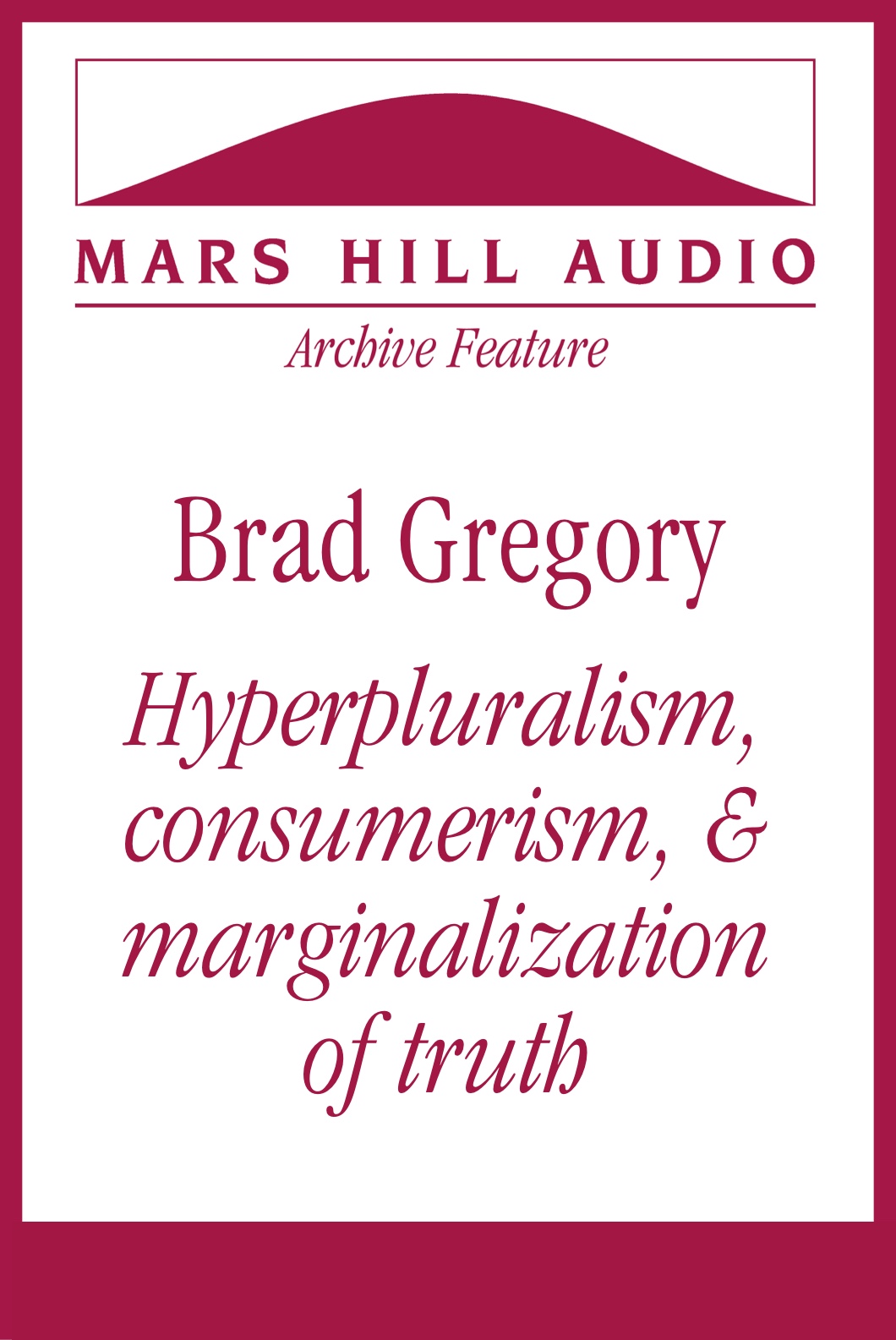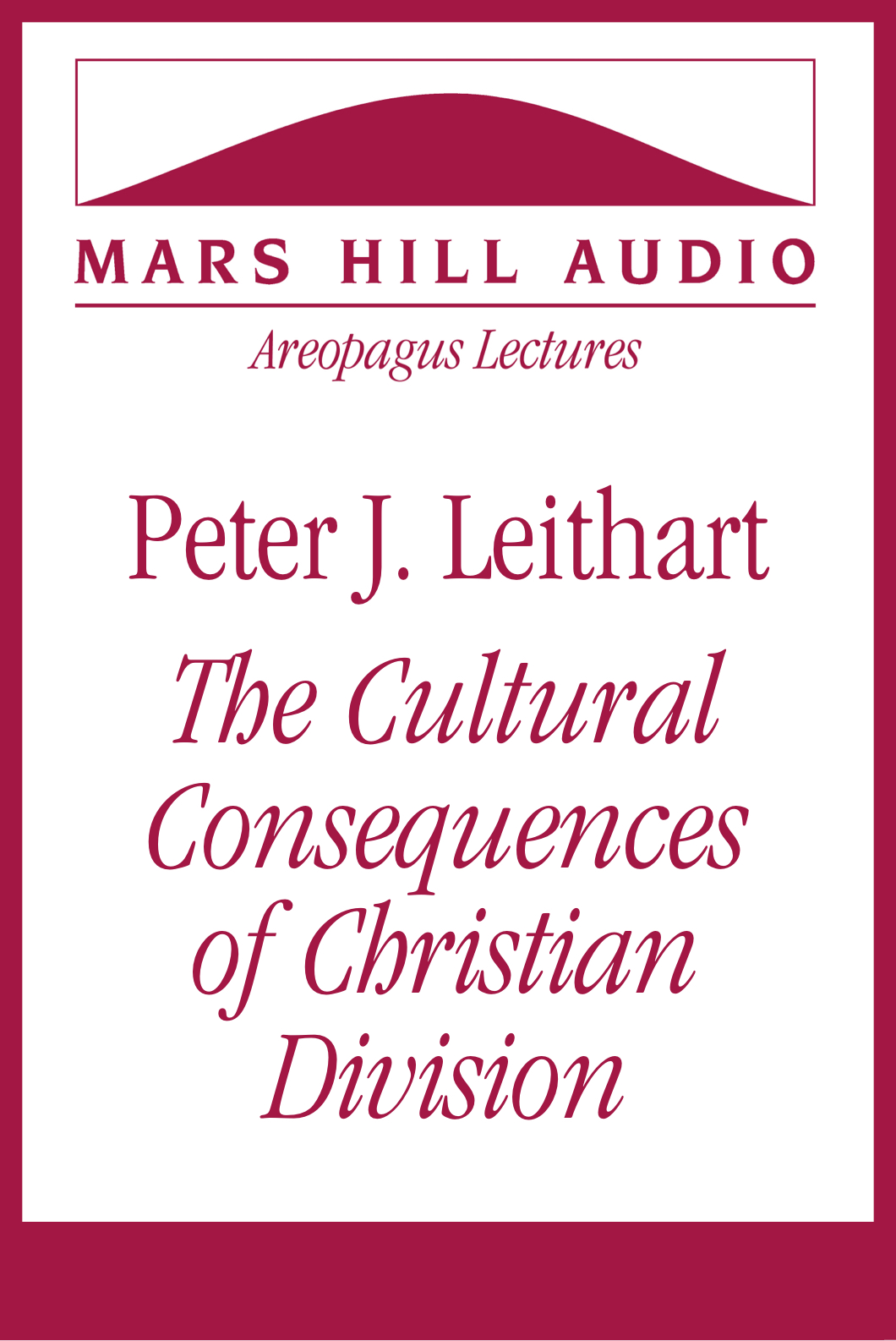originally published 5/1/2012
Historian Brad Gregory discusses the unintended consequences of the Reformation, consequences which continue to this day in the hyperpluralism and polarization of the public sphere, the unsustainable consumerism of the developed world, and the marginalization of truth in human morality and culture. He begins by articulating the problems with a “supersessionist” view of history, the idea that later epochs completely displaced earlier periods of time so that the concerns of earlier periods effectively evaporate. Among these problems is the forced homogeneity this view imposes on what really is a very heterogenous mix of persons, perspectives, and lives in modern society. Gregory then explains how the disagreements and conflicts of the Reformation era between various Protestant and Catholics communities led to institutional solutions that first created a category of private religion and then removed that religion from the domain of public life. Ironically, this development would not have been acceptable to any of the Reformation-era parties, all of whom insisted Christianity ordered all of life, but nonetheless their inability to unite led to the secularization of the world. Gregory ends with a discussion of religious liberty and how the modern State controls the religious lives of individuals as much if not more than civil or ecclesiastical authorities in the medieval period.
26 minutes
PREVIEW
The player for the full version of this Feature is only available to current members. If you have an active membership, log in here. If you’d like to become a member — with access to all our audio programs — sign up here.
More to hear . . .
In our inaugural Areopagus Lecture, pastor-theologian Peter J. Leithart presented a lecture entitled “The Cultural Consequences of Christian Division.” In this talk, Dr. Leithart focuses on the pivotal role that the 1529 Marburg Colloquy played in Christian division among Protestants, particularly in the debate between Martin Luther and Ulrich Zwingli over the Real Presence in the Eucharist. As a result of the impasse between Luther and Zwingli (and their subsequent refusal to commune at the Lord’s table), the Colloquy of Marburg shifted the Eucharist from something that Christians primarily do together to something about which Christians think or believe a certain way.
This feature is available to listeners with a Mars Hill Audio membership.
Related reading and listening
- Truth, goodness, and beauty (and why they matter) — FROM VOL. 147 Philosopher D. C. Schindler examines how postmodernism poses a unique threat to our sense of an interior self. (28 minutes)
- The joy and mystery of poetry — FROM VOL. 98 Jeanne Murray Walker discusses how she helps students approach and appreciate poetry as the mysteriously meaningful literature it is, rather than as a linguistic cage containing static meaning to be abstracted from the words of the poem. (23 minutes)
- Knowing the world through the body — FROM VOL. 76 Professor Martin X. Moleski explains why Michael Polanyi (1891-1976) left his career in science to become a philosopher. (16 minutes)
- Modernity and the shaping of America — FROM VOL. 48 Historian Jon Butler explains how aspects of modernity were already present and at work in colonial American life prior to 1776. (12 minutes)
- Tech bros and public power — Paulina Borsook discusses the “bizarrely narcissistic” and ultra-libertarian culture of Silicon Valley. (22 minutes)
- “A sign of contradiction” — In this lecture, Daniel Gibbons compares and contrasts understandings of sacramental poetics proposed by Augustine, Aquinas, and Sydney. (36 minutes)
- Treating Truth with sovereign respect — Henri de Lubac on the urgency of intellectual activity
- Goodness, truth, and conscience — David Crawford examines Karol Wojtyła’s thought on the relationship between conscience and truth. (37 minutes)
- When language is weaponized — FROM VOL. 52 Jeffrey Meyers explains George Orwell‘s understanding of how language can be used as a weapon in totalitarian movements and regimes. (10 minutes)
- Multi-leveled language and active spiritual engagement — FROM VOL. 95 Eugene Peterson talks about how Jesus spent most of his time speaking normally and conversationally, and how the Spirit infused this normal speech. (14 minutes)
- Torrential winds of doctrine — Joseph Cardinal Ratzinger on the “dictatorship of relativism”
- Why liberalism tends toward absolutism — In this lecture, Michael Hanby examines what causes liberalism to become dictatorial in thought and practice. (49 minutes)
- In praise of a hierarchy of taste — In a lecture at a CiRCE Institute conference, Ken Myers presented a rebuttal to the notion that encouraging the aesthetic appreciation of “higher things” is elitist and undemocratic. (58 minutes)
- No neutral view of the cosmos — Ken Myers argues that Christians need to recover a “whole-earth discipleship” that enables them to think Christianly about all areas of life, including public life. (50 minutes)
- A theology of eating — FROM VOL. 113 Theologian Norman Wirzba examines the relationship between food and faith. (24 minutes)
- Freedom as conformity to reality — W. Bradford Littlejohn summarizes the definitions of liberty offered by Richard Bauckham and Oliver O’Donovan
- Life without limits? — Robert Westbook on Christopher Lasch’s critique of the modern rejection of limits
- The sovereignty of love — In this 2022 lecture, Oliver O’Donovan explains the historical background — and present consequences — of the assertion by Jesus of two great commands. (67 minutes)
- Justice and truth — Joseph Ratzinger: “Plato’s philosophy is utterly misconceived when he is presented as an individualistic, dualistic thinker who negates what is earthly and advocates a flight into the beyond.”
- Sustaining a heritage of wisdom — Louise Cowan (1916–2015) explains how the classics reach the deep core of our imagination and teach us to order our loves according to the wholeness of reality. (16 minutes)
- Once there was no “secular” — Carlos Eire on the metaphysical assumptions championed in the sixteenth century
- Sources of wisdom (and of doubt) — Roger Lundin shares what he has appreciated about Mars Hill Audio conversations, and he discusses what makes Christian belief so implausible to non-believers. (32 minutes)
- Is irrational freedom truly freedom? — Joseph Cardinal Ratzinger argues that freedom must be understood in the context of interplay of reason and the will
- Is religious belief really true? — Joseph Cardinal Ratzinger asks if Christian faith is just lovely subjective consolation, a kind of make-believe world side by side with the real world
- Liberal arts and the importance of truth — Listen to conversations with two guests from Volume 153, Margarita Mooney and Louis Markos, on the liberal arts and the importance of truth. (26 minutes
- Unreason destroys freedom — Joseph Cardinal Ratzinger on the relationship between freedom and truth
- What is really true? Why does beauty matter? — Bishop Robert Barron talks about the necessity of persuading people that theological claims are about things that are objectively true, not just personally meaningful. (14 minutes)
- Our commerce, our selves — Thomas Frank argues that the anti-establishment ethos of the counterculture was not a new phenomenon in the 1960s but was already present in corporate America long before the Beatles showed up. (23 minutes)
- Don’t feel bad — James Twitchell discusses a few of the themes in his book about the confusing state of the evolution of shame and shamelessness. (20 minutes)
- Desire desires desire — Zygmunt Bauman on being a consumer in a consumer society
- Why communities need authority — Alan Ehrenhalt argues that real community can only be sustained when three things are assumed: the goodness of limits, the necessity of authority, and the reality of personal sin. (13 minutes)
- Justice and gender, round 2 — Margaret Harper McCarthy, one of the authors of a brief on gender submitted to the Supreme Court, discusses the philosophical and practical implications of fashionable notions of the meaning of gender. (33 minutes)
- Loving your neighbor during a pandemic — Brad Littlejohn reflects on how best to ask and answer some of the questions raised by our current disease-ravaged circumstances, particularly questions related to Christian freedom and love of neighbor. (29 minutes)
- Freedom and equality according to Flannery O’Connor — Three guests discuss Flannery O’Connor’s ideas: Henry T. Edmondson, III, on O’Connor’s understanding of political life; Ralph C. Wood, on O’Connor as a “hillbilly Thomist”; and Susan Srigley, on O’Connor’s sacramental and incarnational fiction. (18 minutes)
- On the meaning of gender and the truth of human nature — Margaret Harper McCarthy, one of the authors of a brief on gender submitted to the Supreme Court, discusses the philosophical and practical implications of fashionable notions of the meaning of gender. (29 minutes)
- Mars Hill Audio Journal, Volume 141 — FEATURED GUESTS:
Grant Wythoff, Susanna Lee, Gerald R. McDermott, Carlos Eire, Kelly Kapic, and James Matthew Wilson
- Martin Luther, Printing, and the Making of the Reformation — Historian Andrew Pettegree (Brand Luther: 1517, Printing, and the Making of the Reformation) describes how Luther’s facility for writing in German and his intuitive business sense spread ideas and transformed the distribution model of the printing industry. (55 minutes)
- Christopher Lasch: “Conservatism against Itself” — In this early article from First Things, historian Christopher Lasch poses the question of whether cultural conservatism is compatible with capitalism. (42 minutes)
- Mars Hill Audio Journal, Volume 137 — FEATURED GUESTS:
Gilbert Meilaender, James L. Nolan, Joel Salatin, Michael Di Fuccia, Robin Leaver, and Michael Marissen
- Mars Hill Audio Journal, Volume 136 — FEATURED GUESTS:
Thomas Albert Howard, Mark Noll, Andrew Pettegree, Peter J. Leithart, Norm Klassen, James Litton, and Joseph O’Brien
- Peter J. Leithart: The Cultural Consequences of Christian Division — Peter J. Leithart discusses how the sixteenth-century Colloquy of Marburg shifted the understanding of the Eucharist from something that Christians primarily do together to something about which Christians think or believe a certain way. (69 minutes)
- The missional mandate of truth — Joseph Ratzinger on the partnership of faith and reason in the coherence of love and truth
- Skepticism and totalitarian drift — John Paul II on how a loss of confidence in the reality of truth accentuates the will to power
- Love and truth precede justice — James Matthew Wilson on the relationship between truth and love in Benedict XVI’s Caritas in Veritate
- The witness of goodness and beauty to truth — Joseph Cardinal Ratzinger on the apologetic necessity of holiness and great art
- The reasonableness of love — Terry Eagleton on the myth of the disinterested pursuit of truth
- Mars Hill Audio Journal, Volume 114 — FEATURED GUESTS: Susan Cain, Brad S. Gregory, David Sehat, Augustine Thompson, O.P., Gerald R. McDermott, and Marilyn Chandler McEntyre
- Mars Hill Audio Journal, Volume 102 — FEATURED GUESTS: Daniel M. Bell, Jr., Lew Daly, Adam K. Webb, Stratford Caldecott, James Matthew Wilson, and Thomas Hibbs
- Mars Hill Audio Journal, Volume 94 — FEATURED GUESTS: Maggie Jackson, Mark Bauerlein, Tim Clydesdale, Andy Crouch, and Jeremy Begbie
- A devilish temptation — Wendell Berry explains how the modern Western ideal of the sovereign self enshrines a story of the abandonment of restrictions and restraints in the name of human freedom.

